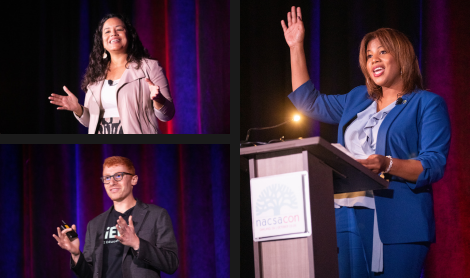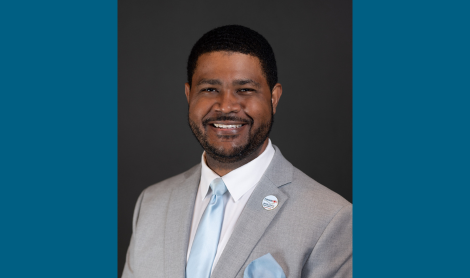NACSA Blog
Press Releases
 |
NACSA Responds to President Trump’s Proposed FY2019 BudgetIn response to President Trump’s recently announced FY2019 budget, which includes a $500 million increase for charter schools, NACSA’s Interim CEO and Vice President of Research & Evaluation, Karega Rausch released the … |
 |
NACSA responds to CREDO Report on School ClosureToday, the Center for Research on Education Outcomes (CREDO) released a report looking at school closure across the country. In response, Greg Richmond, president and CEO of the National Association of Charter School Authorizers … |
 |
NACSA Responds to the NAACP’s Education ReportToday, the NAACP Task Force on Quality Education issued a report with findings and recommendations resulting from its series of hearings on public education. In response, Greg Richmond, President and CEO of the National Association of … |
 |
Statement on CREDO Charter Management Organization (CMO) StudyToday, the Center for Research on Education Outcomes (CREDO) released a report looking at the performance of charter management organizations across the country. In response, Greg Richmond, president and CEO of the … |
 |
NACSA Issues Statement on President Trump’s Proposed FY2018 BudgetIn response to President Trump’s recently announced FY2018 budget, which includes a $168 million increase for charter schools, NACSA President and CEO Greg Richmond released the following statement: “We support and … |
 |
Updating NACSA’s New School ApplicationBecause one of the most consequential decisions any authorizer makes for students and communities is whether to approve a new school to open, we’ve been working with the field over the past … |
 |
2023 Change MakersOur 2023 Change Makers are people, in and around authorizing, who are working and persevering to meet the needs of students, families, and communities. Their work reminds us of the connection between … |
 |
Applying Charter Authorizing Principles in the Early Childhood FieldThis blog was written by Abby McCartney, Director, Early Care and Education, Afton Partners and Carrie Stewart, Co-Founder and Managing Partner, Afton Partners Introduction: Early Care and Education at a Crossroads Despite … |
 |
2023 State of Charter Authorizing ReportAuthorizing is the most consequential public school governance reform of the past two decades. For the last 20+ years, authorizers have been creating a new landscape, where school autonomy—balanced by fierce accountability … |
 |
The Way to More Community-Responsive SchoolsAuthorizers don’t develop or design new schools. But they are the gateways that help bring these schools to life, providing the conditions and expectations for what extraordinary schools and equitable learning experiences … |
 |
Why We Support the Empower Charter School Leaders ActThe National Association of Charter School Authorizers (NACSA) advances and strengthens the ideas and practices of authorizing so students and communities–especially those who are historically under-resourced–thrive. NACSA engages authorizers who oversee more … |
 |
We Need Better Research on “Regulation”Outcomes for all students still matter. And outcomes matter now more than ever with accumulating evidence of inadequate progress in pandemic recovery efforts. And charter schools are achieving impressive outcomes for students. … |
 |
Applying Authorizing Principles Across EducationIn 2022, NACSA thoroughly reviewed its historical work to identify the principles of quality authorizing with the greatest potential for broader applicability beyond the charter school sector. NACSA staff and advisors looked … |
 |
New Charter Schools Need Vetting. But the Process Shouldn’t Shut Good Ones OutOver the last year, the National Association of Charter School Authorizers and our partners engaged nearly 150 school leaders, authorizers, organizations, prospective school founders and advocates — through interviews, focus groups, data … |
 |
NACSA’s New Schools With Communities GuideIn every community–especially those historically under-resourced–there is long-ignored and underutilized knowledge and potential. At the heart of NACSA’s work lies the recognition of these tremendous assets and a desire to work with … |